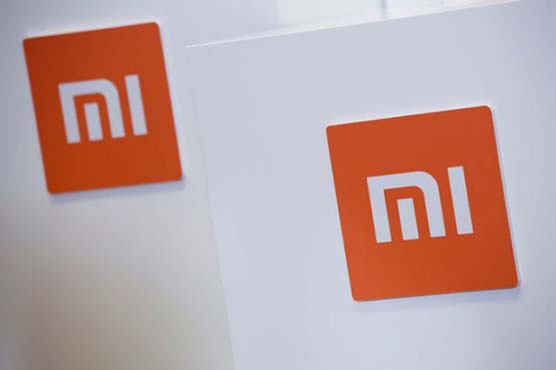Smartphone giant Xiaomi reels as US ramps up China blacklist

Xiaomi is one of biggest companies to be blacklisted so far and its shares plunged 11pc in Hong Kong
HONG KONG (AFP) - Shares in Xiaomi collapsed on Friday after the United States blacklisted the smartphone giant and a host of other Chinese firms as the Trump administration aims to cement its trade war legacy against Beijing.
The flurry of last-minute blacklistings is the coda to four years of aggressive diplomatic and trade policies towards rival China under President Donald Trump.
With just six days to go before Trump leaves office, US officials made a series of announcements targeting Chinese firms including state oil giant CNOOC, Xiaomi and embattled social media favourite TikTok.
Xiaomi -- which overtook Apple last year to become the world’s third-largest smartphone manufacturer -- was one of nine new firms classified by the Pentagon as "Communist Chinese military companies".
The action means US investors will be unable to purchase Xiaomi securities and will ultimately have to divest down the line unless the order is overturned by the incoming presidency of Joe Biden.
Xiaomi is one of the biggest companies to be blacklisted so far and its shares plunged 11 percent in Hong Kong on Friday after the announcement. US chip giant Qualcomm is a major investor.
In a statement, the Department of Defense said it was "determined to highlight and counter the People’s Republic of China’s military-civil fusion development strategy" that allowed it to access key technology and security data.
Similar actions have been made by the US against other tech firms including Huawei and chip giant SMIC, hobbling their ability to import key technology and compete internationally.
‘Reckless and belligerent’
Trump issued an executive order in November banning Americans from investing in Chinese companies deemed to be supplying or supporting the country’s military and security apparatus, earning a sharp rebuke from Beijing.
Earlier this month the New York Stock Exchange said it was delisting three state-owned Chinese telecoms giants to comply with the order.
The Commerce Department also released a separate banned entity list on Thursday targeting companies such as CNOOC and deep-water explorer Skyrison, which develops military equipment.
That makes it extremely difficult for US firms to export products or technology to those companies without a hard-to-obtain licence.
Commerce Secretary Wilbur Ross said CNOOC had been listed because of "reckless and belligerent actions in the South China Sea and its aggressive push to acquire sensitive intellectual property and technology for its militarization efforts".
"CNOOC acts a bully for the People’s Liberation Army to intimidate China’s neighbors, and the Chinese military continues to benefit from government civil-military fusion policies for malign purposes," Ross said.
New tech rules ‘adversaries’
Territorial disputes in the South China Sea have festered for years, with Beijing ignoring US protests as it built a series of artificial islands to expand its military and commercial reach in the region, that is believed to have valuable oil and gas deposits -- which Washington values at $2.5 trillion.
China claims nearly all of the South China Sea, including the Spratly Islands, though Taiwan, the Philippines, Brunei, Malaysia and Vietnam all claim parts of it.
"CNOOC has repeatedly harassed and threatened offshore oil and gas exploration and extraction in the South China Sea, with the goal of driving up the political risk for interested foreign partners, including Vietnam," the Commerce Department said.
CNOOC’s share price was unaffected by the news on Friday, trading up 0.12 percent in Hong Kong.
Meanwhile, the Commerce Department also announced new rules for trading in technology and communications equipment with "foreign adversaries" including China, Russia, Iran, North Korea, Cuba and Venezuela.
The rule, to be published Friday, will take effect in 60 days. Officials said it was decided after careful review with the private sector, and published with the hope the incoming Biden administration would keep the policies in place.
The aim is to protect against data and national security vulnerabilities in software and hardware, and would outline a six-month review process before any ban would be implemented.
A senior administration official confirmed the new rule would apply to TikTok, the video app that Trump banned from operating in the United States.

